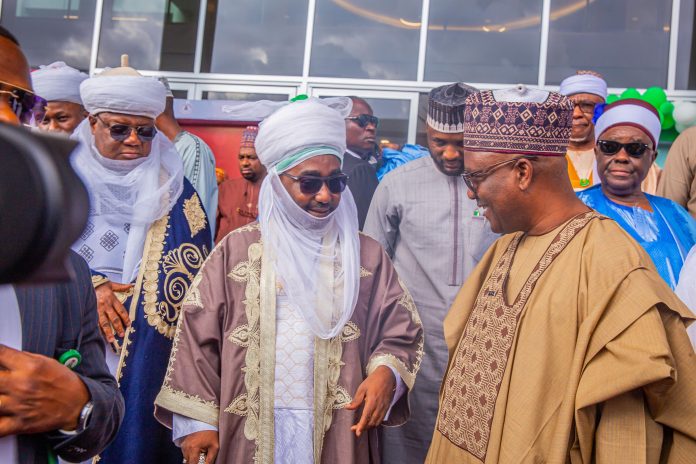The Speaker of the House of Representatives, Dr. Abbas Tajudeen, says the 10th National Assembly is working on proposals to establish a three-tier traditional institution system in Nigeria through the ongoing amendment of the 1999 Constitution.
Dr. Abbas disclosed this in Abuja during an interactive session with traditional rulers, held as part of activities marking the 2025 Open NASS Week. The event was organised by the leadership of the House of Representatives in collaboration with the Policy and Legal Advocacy Center (PLAC) and other development partners.
Addressing the traditional rulers, led by the Emir of Zazzau, Ambassador Ahmed Nuhu Bamalli, the Speaker explained that the proposed structure would operate at the federal, state, and local government levels to complement the work of the political class.
“Permit me to give you an insight into what the National Assembly is deliberating on with respect to traditional institutions. The 10th Assembly is actively considering proposals to grant constitutional recognition to traditional institutions. In doing so, we are looking at creating a three-tier traditional council structure,” he said.
He added that the proposed National Council of Traditional Rulers would serve as an apex body to advise the President on national unity, security, and cultural affairs.
“The second tier will be the State Council of Chiefs, which will be constitutionally recognised by state governments to address issues related to customary laws, peacebuilding, and development. The third tier, the Local Government Traditional Council, will engage directly with local governments, especially on matters of security, peacebuilding, and community development,” he explained.
Dr. Abbas further noted that these proposals draw inspiration from the unimplemented Section 8 of the 1989 Draft Constitution, which provided for a local government traditional council chaired by traditional rulers.
He also stressed the need to address the issue of financial autonomy for traditional institutions, which he described as long neglected.
Responding to concerns about political victimisation and harassment, particularly during and after elections, the Speaker assured the traditional rulers that the National Assembly would work towards constitutional safeguards to protect traditional leaders from undue political influence and coercion during election campaigns.
In his remarks, the Emir of Zazzau, Ambassador Ahmed Nuhu Bamalli, said traditional rulers are simply seeking the restoration of their historic leadership and administrative roles in peacebuilding, crime prevention, and cultural preservation.
He noted that all pre-independence constitutions and the 1963 Republican Constitution recognised the roles of traditional institutions, but these provisions were removed in subsequent constitutional amendments.
The Emir observed that since then, governance at the grassroots has suffered, as state agencies often struggle to effectively engage with rural communities without the active involvement of traditional rulers.

